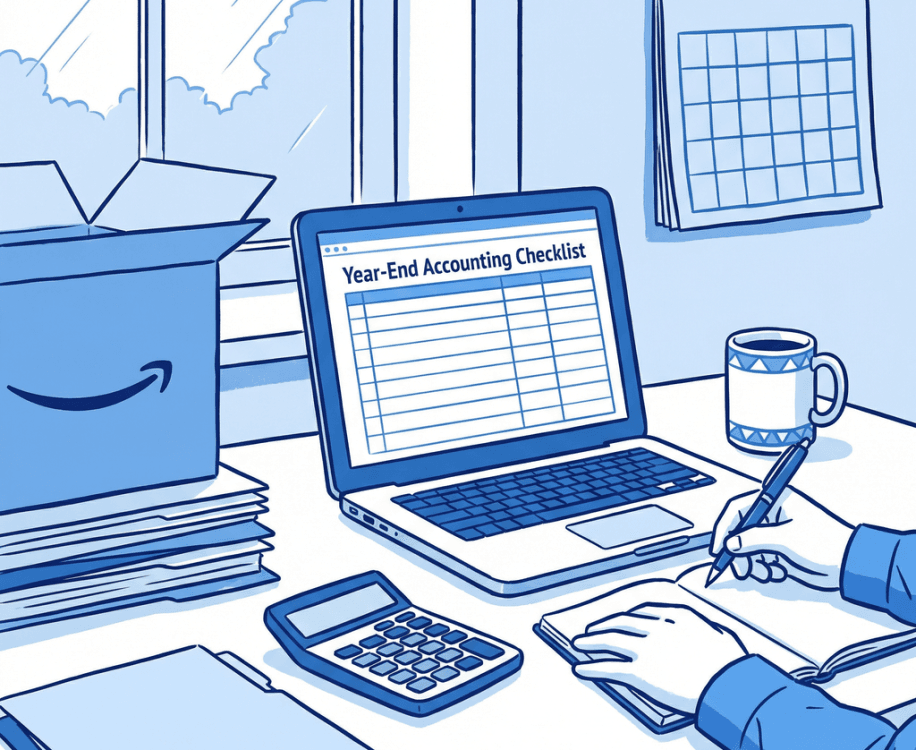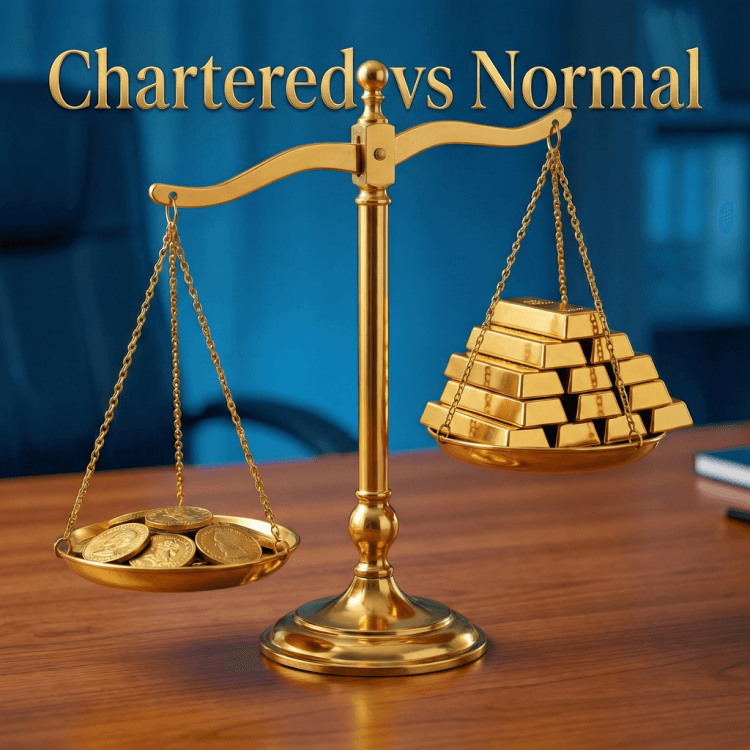FCCA CHARTERED CERTIFIED ACCOUNTANCY FIRM
eCommerce Accountants: Expert Services for Online Businesses


We are a UK-based chartered eCommerce accountant firm.
Sync Accountants provides tax, accounting, and advisory services for eCommerce businesses across the UK.
Our team of expert eCommerce accountants, including tax professionals and chartered accountants, is dedicated to supporting online businesses.
Our eCommerce accountants excel in Amazon Seller Central.
Our services include verification issues, year-end reports, and reinstating suspended accounts. As expert eCommerce accountants, we also guide on private labelling and business scaling.
Main Benefits of coming to us:
Our Happy Clients
Client onboarding timeline
Day 1
Discovery
- Schedule an initial meeting to discuss your business needs.
- We find out about your business
- We discuss your goals and values
- We show you how we can help
- If we’re a fit, we provide a proposal for our services
Week 1
Onboard
- You sign the proposal
- We complete the necessary admin
- We contact your previous accountant to transfer required info
- We notify HMRC that we are your accountants
Week 2-3
Setup
- We get your bookkeeping system set-up
- We begin any backdated work and iron out any historical creases
- We set expectations on all the key deliverables
Month 1 +
Support
- We handle your ongoing bookkeeping & quarterly VAT returns
- We send you reminders of upcoming tax and filing deadlines
- We touch base to support your business
Frequently Asked Question (FAQ)
Yes, especially if your business is growing. While a standard accountant can handle basic bookkeeping, a Chartered Accountant is a fully regulated expert trained to handle complex tax planning, compliance, and strategic growth.
If you want to understand exactly how this choice impacts your business liability and tax efficiency, read our full guide on Chartered Accountant vs Accountant: What Is the Difference?
We always recommend paying using your business bank account if you can as a principle.
If your business bank account lacks funds then transfer from your personal bank to your business bank account and then make the purchase or payment for business expenses.
This helps your bookkeeping at the year tremendously.
Save all supplier invoices onto a cloud storage service like GDrive or One Drive or even Dropbox instead. Save your invoices in order of month/year when creating files. This can help you in future to claim VAT possibly and your obligation as a director.
As director you are responsible for keeping records according to company law. If you ever want bookkeeping service where we can help in managing documents in an efficient manner please get in touch.
The answer would be no in this case, when we set up your company we will include our office address as your company's registered office address.
A business address is where the business conducts its trade or operation. This would be your home address.
The registered office address is reserved to help keep your home address private on the Companies House website, it also allows important mail from HMRC and Companies House to be sent to us so we can review it and act accordingly.
The correspondence address should also be your home address as well, we tend to receive very important letters from banks sometimes as some clients think the correspondence address should match the registered office address.
Bank cards and pins and online bank login detail should be sent directly to you as it is sensitive information.
If you have a registered office address service with us, you can check your company on Companies House using this link: https://www.gov.uk/get-information-about-a-company to see what the address is otherwise, our address is:
Sync Accountants Limited
The Media Centre
7 Northumberland Street
Huddersfield
HD1 1RL
Charitable donations to a registered UK charity are tax deductible for a company, so if you want you can make a donation from your business bank account for Zakat, Sadaqa, etc.
This means for every £1 donated you save 19p or 25p from corporation tax or for every £100 donation you save £19 or £25 from corporation tax. Companies making more than £50,000 or have a few companies then the corporation tax rate goes from 19% to 25%.
If your company is making a loss and not a profit, the donation tax effect is wasted as it cannot increase the loss to carry forward to future years to offset against future profits. So it's possible that donating does not decrease your taxes if you're not going to be paying corporation tax that year anyway.
When making the donation, make sure not to tick that you are a UK individual taxpayer as that relates to gift aid, and charities cannot claim that from the government as you are donating from a company.
If you're not sure which charity is registered in the UK, you can check their website, and they should usually have a registration number or they can be found on the charity commission website.
Or if you want you can donate to my favourite charity 😇: https://www.orphan-appeal.co.uk/
This all depends on your current circumstances.
It depends on who is working or receiving an income already, how invested you are in the business, and the future level of profitability of the business.
You can always include your partner as a director and/or a shareholder in the future. It may add more work when trying to get verified with Amazon, so you may want to speak to Samara's team about this.
If your partner works in employment or receives other income and earns more than £12,570, then there is no real tax benefit in appointing them as a director. They can still be a director if they want the power to make decisions and run the business. It is up to you. They can have the title and responsibility without taking out a salary, which may not be tax-efficient based on their income levels.
A shareholder is the owner of the company. If you go 50/50 between you and your partner, there may be some tax benefit when you withdraw money from the profits of the business in the future as you split the dividends income between the two of you 50/50.
Each tax year, each individual taxpayer is entitled to a tax-free dividends allowance of £1,000. So if each partner has 50% ownership, you can take out £2,000 in total (£1,000 each) instead of only £1,000 if the ownership was under one person's name. Dividends above this amount, however, will be taxable, and if your partner is already earning an income, they are likely to pay income tax depending on how much they earn.
If either of you already owns a company that pays out dividends, the dividends allowance would already be used via the other company dividends issued.
If you or your partner earn above or close enough to £50,270 a year, it’s wise to consider putting the company in the name of the person who earns less than this amount. For example, if your partner earns only £15,000 a year and you earn £60,000, then it’s obvious to put the partner as the full owner at 100%. If both of you earn less than £50,270, then you can keep it at 50%. This can be changed at a later date when you want ownership to change before taking out any dividends.
We do warn that it's rare, but on the occasion of a separation or divorce, each partner will have access to 50% of the whole business, stock, and its profits. So there is that risk.
It can get technical sometimes, so if your case is not straightforward, try and get in touch with us.
Here is a list of published expenses by HMRC for the self-employed that are closely related to company expenses:
Lastly, I have provided a list of expenses outlined by a fellow accountant for you to check: https://www.raymondbenn.co.uk/services/businesses/detailed-list-of-tax-allowable-expenses
Generally speaking, eating out, i.e., subsistence costs, are generally allowable if conducted in the course of running your business, and it's generally associated with eating when traveling to visit suppliers, colleagues, events, or locations required to help run your business.
Is a takeaway order to my home allowable?
It's not supposed to be a common occurrence, but it's generally allowable on the occasion it was required. This also applies if a person travels to different locations to work as part of their trade or business, i.e., construction workers who work on different sites at one time. Each scenario has its own conditions, so it's not clear-cut.
If you are at home, unfortunately, I don't believe this cost is allowable. Based on HMRC guidance, your home is a permanent place of work. It's only when you travel to a temporary location that it can be offset against your business income for tax purposes.
Your training fees for Kickstarter are non-tax-deductable if it’s a new skill your learning, and if it's a course that your taking is to maintain your knowledge or just an update on any changes, then it can be considered tax deductible.If its a new skill your learning then it can be treated as an intangible assets and it will be considered as a loan if you paid for it personally so the company owes you a loan you can later take out reduce possible income tax charges.
We offer three accounting licenses:
- Xero - Manage supplier bills and send customer invoices using smart data technology via an app. Cost: £15.00 per month. Note: For full access, a Xero license costs £28 + VAT. The provided license includes Hubdoc for uploading invoices.
- QuickBooks - Comprehensive bookkeeping software for managing invoices, bank reconciliation, and more. Recommended for small businesses. Cost: £15.00 per month.
- Linkmybooks - Connects Amazon data with Xero or QuickBooks for accurate reporting on sales, fees, and reimbursements. Cost: £15.00 per month.
Setup Assistance: Free setup for licenses and necessary connections.
Alternative Manual Steps:
- Save receipts/invoices to a cloud service.
- Use a business bank card for purchases.
- Record any personal expenditures used for business in a spreadsheet.
- Track mileage to/from suppliers and customers.
Future Considerations:
- Subscription to accounting software becomes mandatory once VAT registered.
- Consider software subscription if sales approach £40,000 annually or £3,000 to £4,000 monthly to monitor VAT threshold compliance.
For more details or to subscribe, please contact us.








